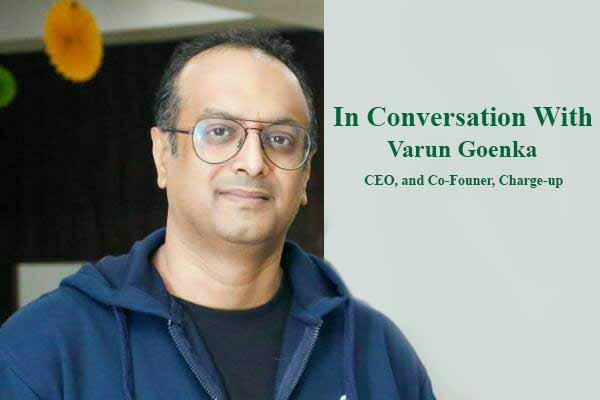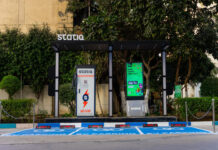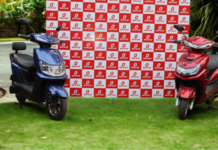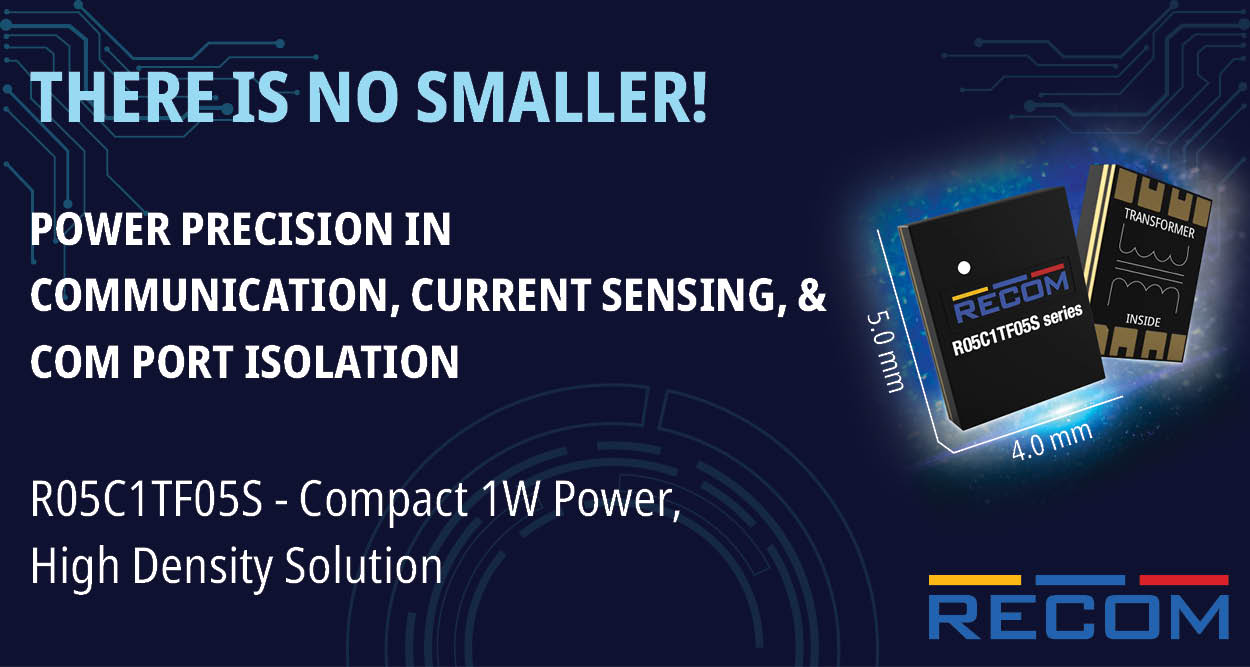Charge-up offers the simple solution of Battery as a Service (BAAS). The company enables the e – rickshaw drivers to join the service without any upfront costs. By subscribing to a daily battery rental plan, Charge-up allows the drivers to visit the swapping station as many as 2-3 times a day to swap the discharged batteries with fully–charged batteries. Varun Goenka, CEO, and Co-Founder, Charge-up shares his views with TimesTech about the need for Battery swap network and the challenges moving ahead.
Read the full interview here:
TimesTech: Explain the services provided by Chargeup and its area of operation and network.
Varun: Chargeup is a Battery-as-a-Service (BaaS) company building Bharat’s largest network of battery swapping stations. We offer our users a subscription-based battery swapping service which is rapidly changing the dynamics of EV operations. Currently, Chargeup is providing services to E-rickshaw & 2-wheeler drivers across Delhi/NCR. As a part of the service, the registered e-vehicle drivers can exchange their drained-out batteries at any of our swapping stations. The discharged battery is replaced with a fully-charged one, and within minute the vehicle is able to get back on road. The batteries are owned and managed by us, and the users just need to swap them at our stations on a pay-per-swap basis. This has made e-rickshaw operations extremely affordable and lucrative for our subscribers. They are able to earn up to double of their income with ease.
TimesTech: What are the differences between lead-acid batteries, currently used by e-rickshaws, and Li-ion batteries? Why should e-rickshaws switch to Li-ion which is costlier than others?
Varun: As the name suggests, the first and foremost difference is the chemistry. The lead-acid batteries are made of lead whereas Lithium-ion or Li-ion batteries use Lithium. The typical lead-acid batteries are much heavier and larger in size compared to a Li-ion battery which is compact and has a very high energy density. The Li-ion batteries are also faster to charge, whereas the lead-acid batteries can take up to 10 hours. The extremely long charging time makes it nearly impossible for an EV owner to use the vehicle again the same day, once the battery runs out.
Another major difference which makes Li-ion batteries more suitable for in-vehicle usage is that they have a much longer lifespan than the lead-acid batteries. When used in an e-rickshaw, the Li-ion battery would be less than a fourth of the weight of the typical batteries which would enable the vehicle to carry more load than the rickshaws with lead acid batteries. Even from the safety and environmental perspective, Li-ion batteries are superior to lead acid. Despite the higher cost, Li-ion offers better returns in the longer run and prove to be more economical. Even the difference of upfront cost no longer matters for the users as under the battery swapping agreement, it is the service provider like Chargeup that would own and manage the battery and the rickshaw drivers just need to pay for the swapping.
TimesTech: What are the challenges you face in the absence of a battery-swap policy and what do you think should be an ideal battery-swap policy?
Varun: Lack of standardization of battery technology has been a major issue. In the recent times, a lot of concerns have been raised around battery safety. A comprehensive battery swapping policy will be able to take care of these concerns. Moreover, there is a lot of ambiguity regarding the wider ecosystem involving multiple swapping service providers, and how will they interoperate etc. To get clarity on these points, we urgently need a battery swapping policy. The draft is ready, and we have also shared our recommendations and feedback on the same. We are confident that a well-rounded battery swapping policy will be announced soon and foster the growth of swapping services in India.
TimesTech: Are you planning to expand to e-autos and e-bikes, if so, what are the challenges and opportunities?
Varun: We will definitely expand to e-autos and e-bikes, and are already working towards the expansion of our services to these vehicle categories. The challenges are primarily about getting the battery technology and swapping facilities absolutely spot on for each vehicle category. Moreover, unlike e-rickshaws, other vehicles like e-autos and e-bikes need to be supported by the OEMs when it comes to swapping solutions. Whether the batteries are easily removable, and compatible to swapping, are some of the questions that need to be answered. We expect the upcoming battery swapping policy to address these challenges and bring e-autos and e-bikes under our coverage once the framework is ready.
TimesTech: What are some new technologies under development that have the potential to revolutionize the EV sector?
Varun: Smart AI-powered battery management solutions are now redefining efficiency, safety and convenience of the battery swapping solutions. The Lithium-ion (Li-ion) batteries we use are currently the most advanced and widely used battery types in the world. There is a lot of research and innovation going on in the arena of battery chemistry, fast charging and battery management software. With the coordination of the EV manufacturers, we will undoubtedly see a major transformation in the sector as demand rises in the next few years.
TimesTech: What are your company’s future growth plans?
Varun: We are aiming to expand the network of our Battery Swapping Stations to over 1000 by the end of this year, and grow it several times in the years ahead. We are aiming to enter into such collaborations with various industry stakeholders, OEMs, and will expand our coverage to e-autos and e-bikes in the coming times. We started our journey with the aim of building Bharat’s largest battery swapping network, and once the formal battery swapping policy is announced, we will surely see speedier growth towards pan-India coverage.














